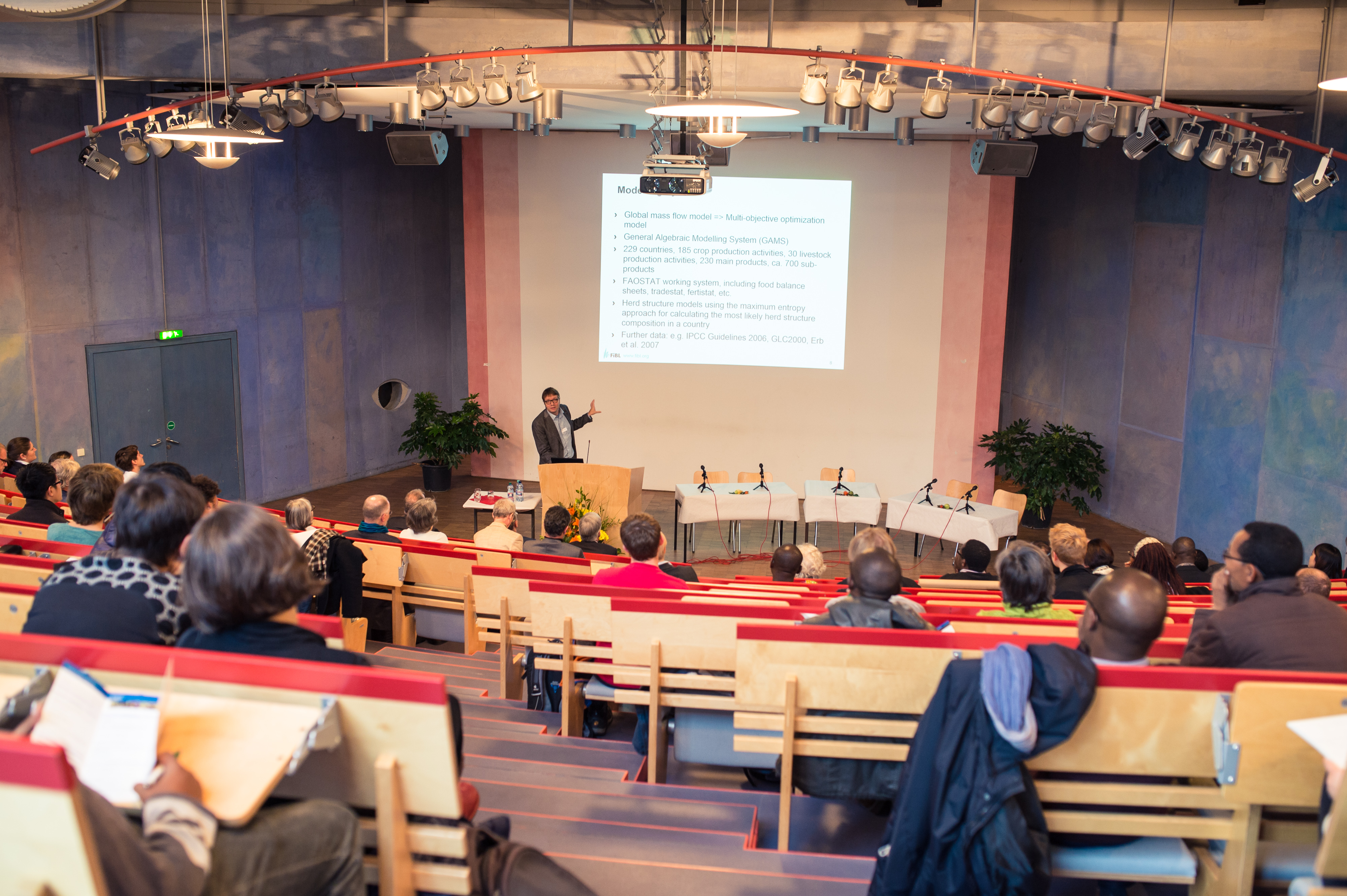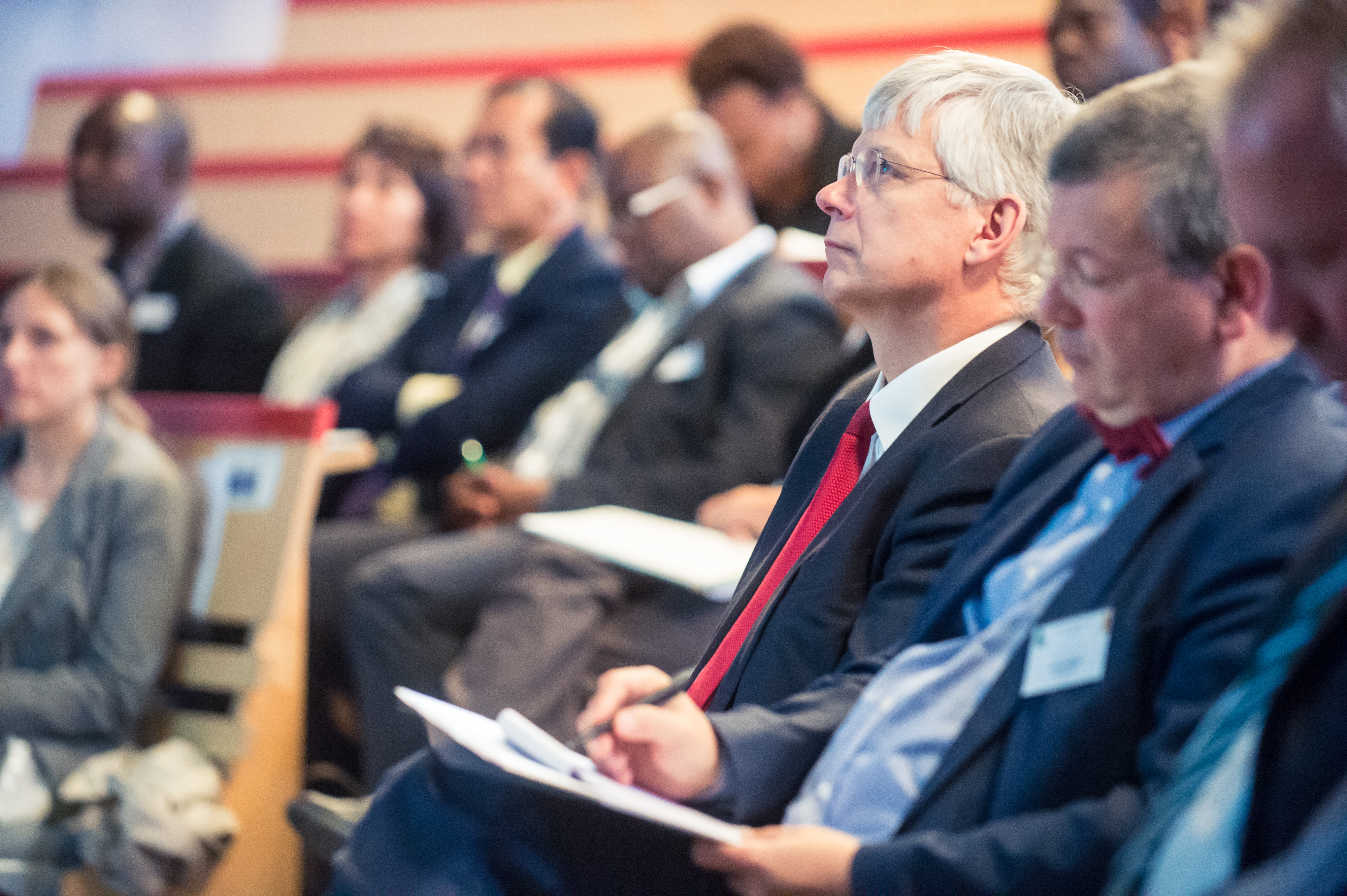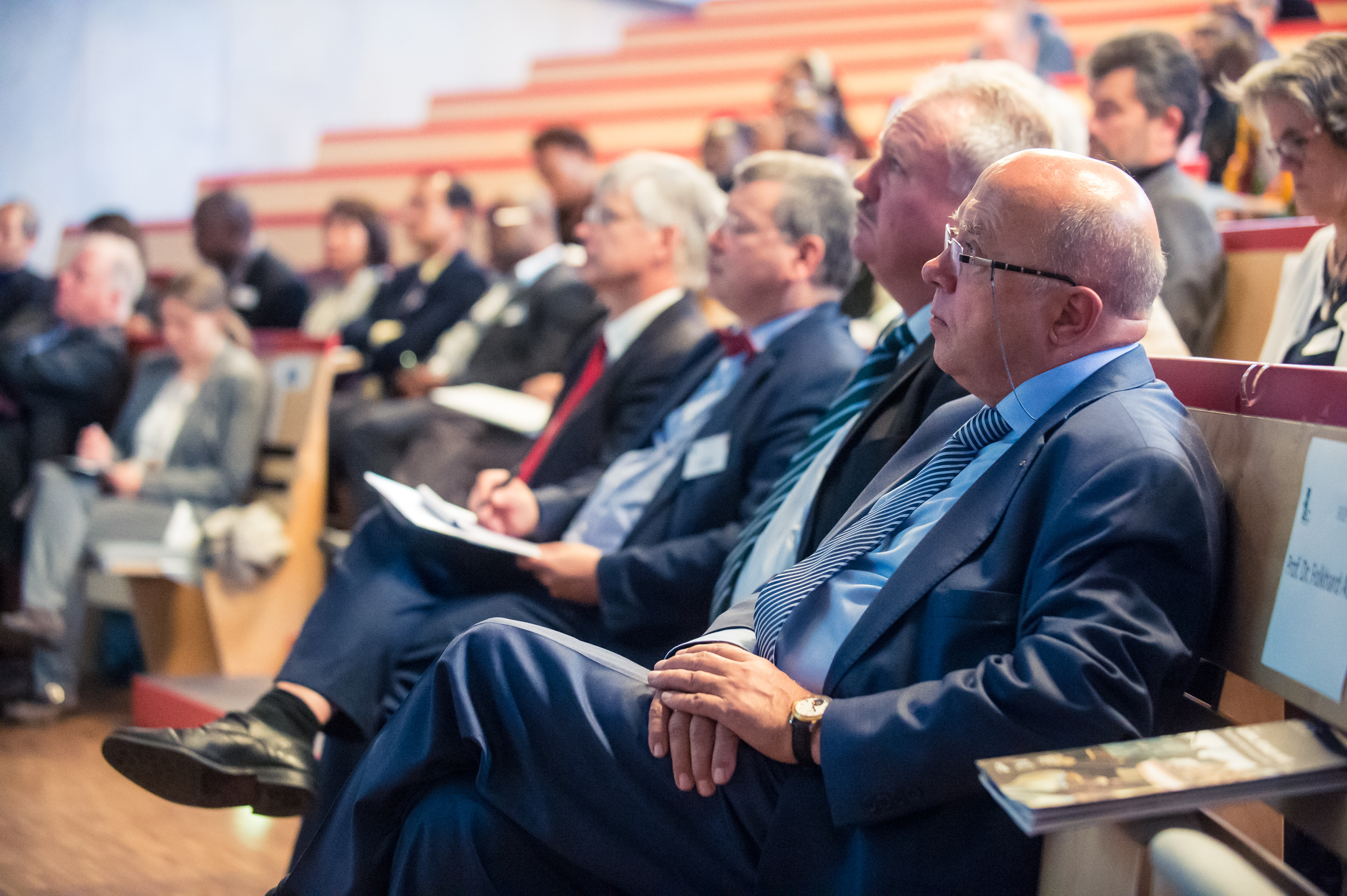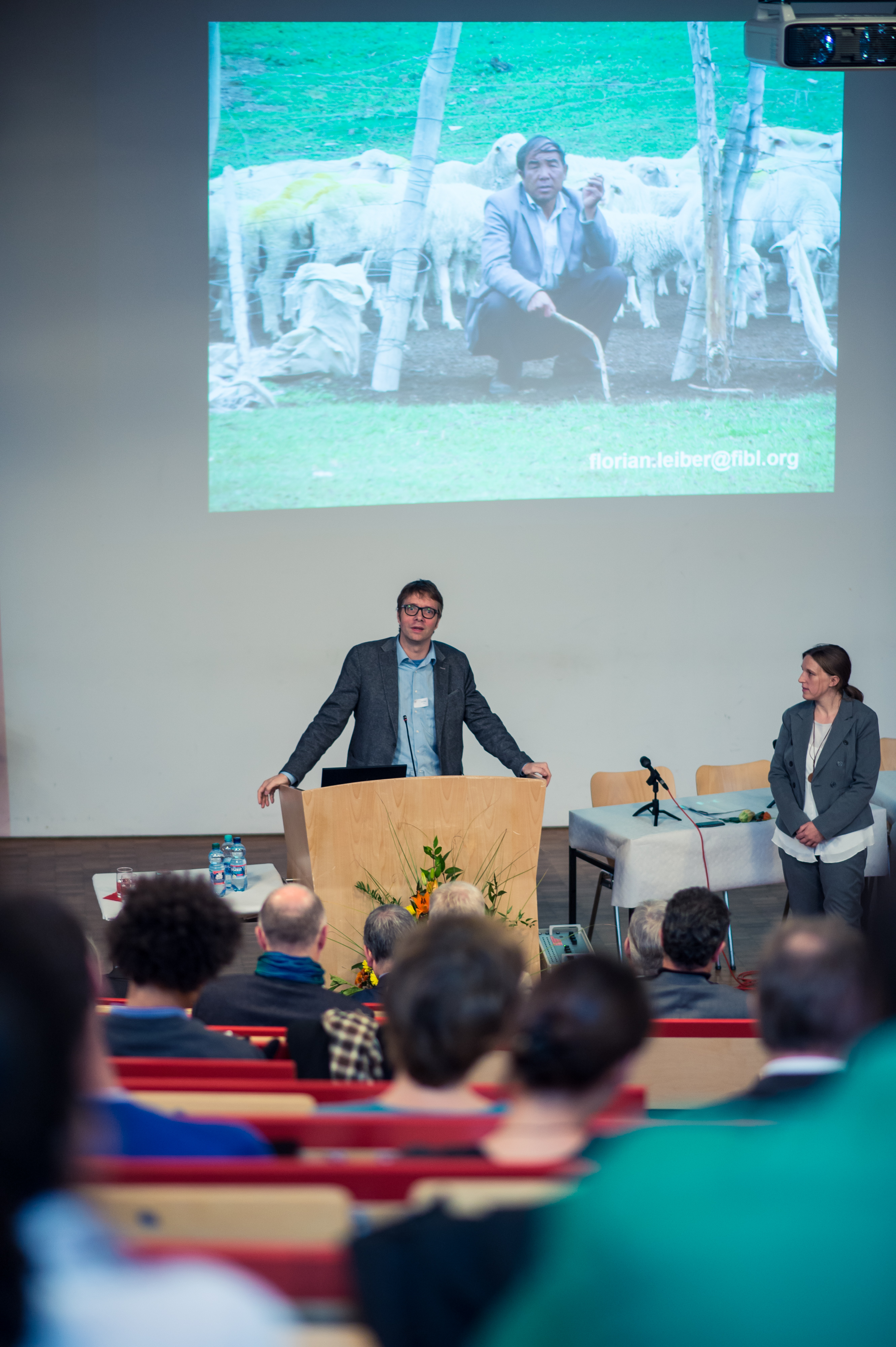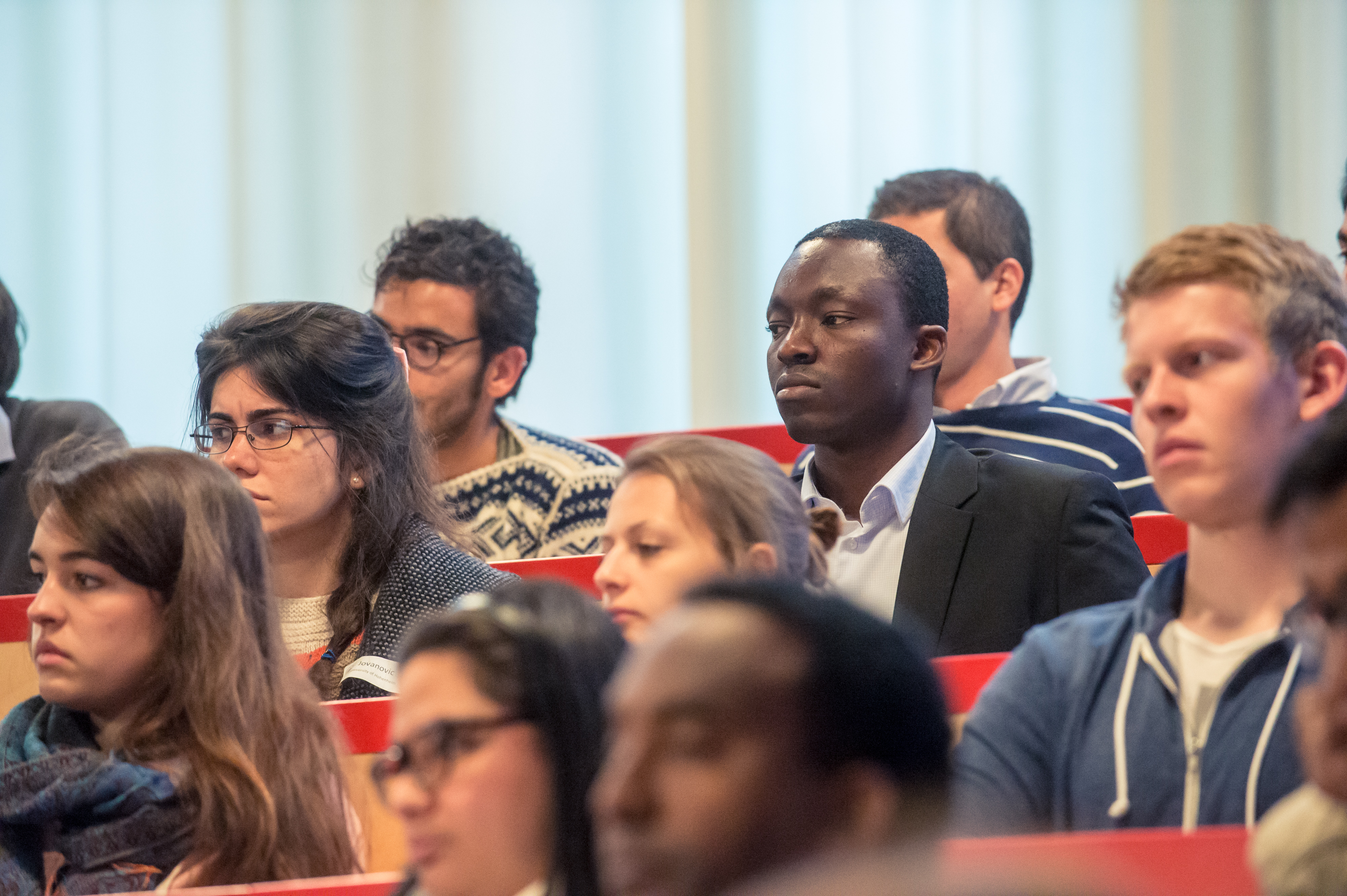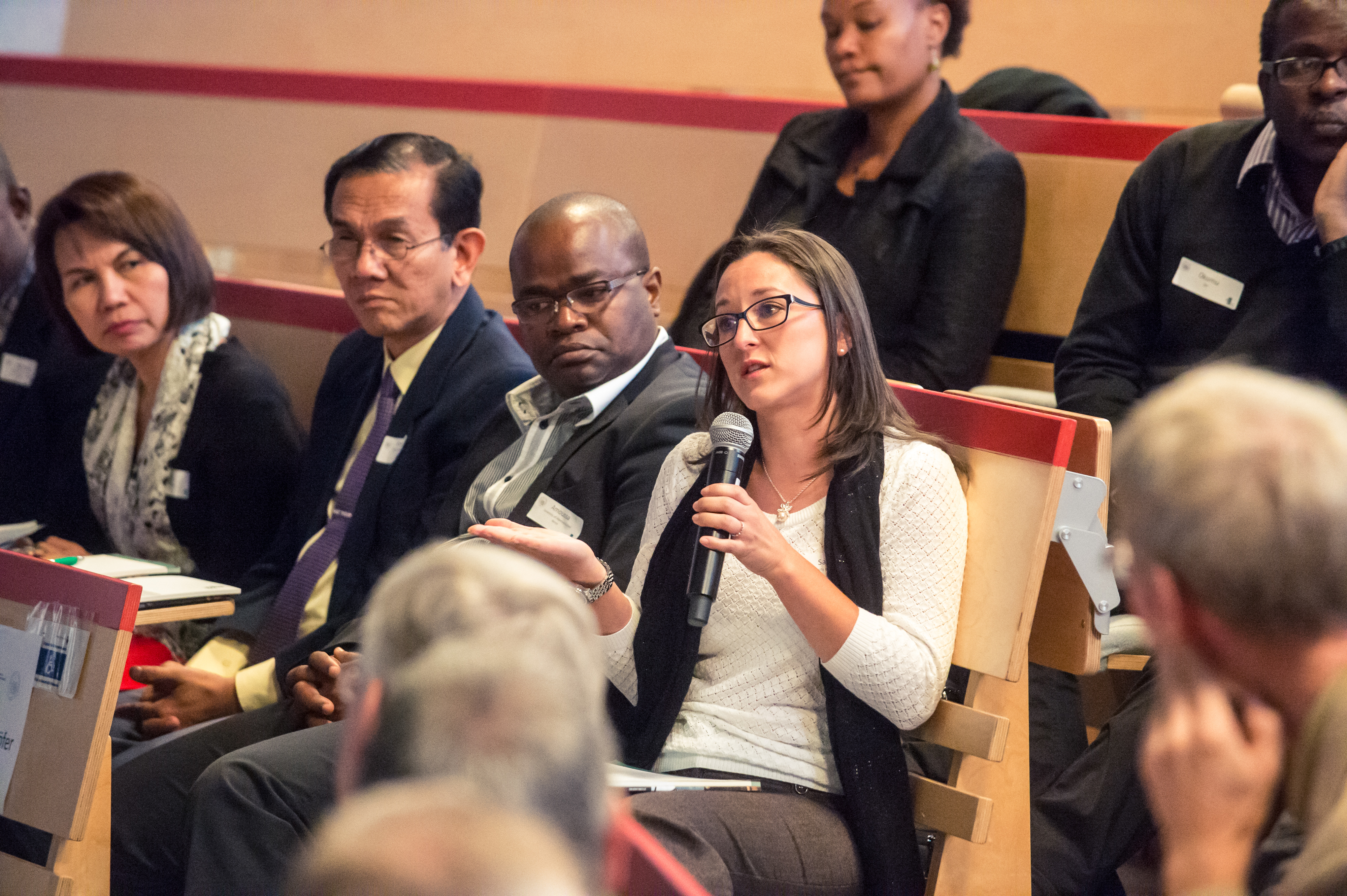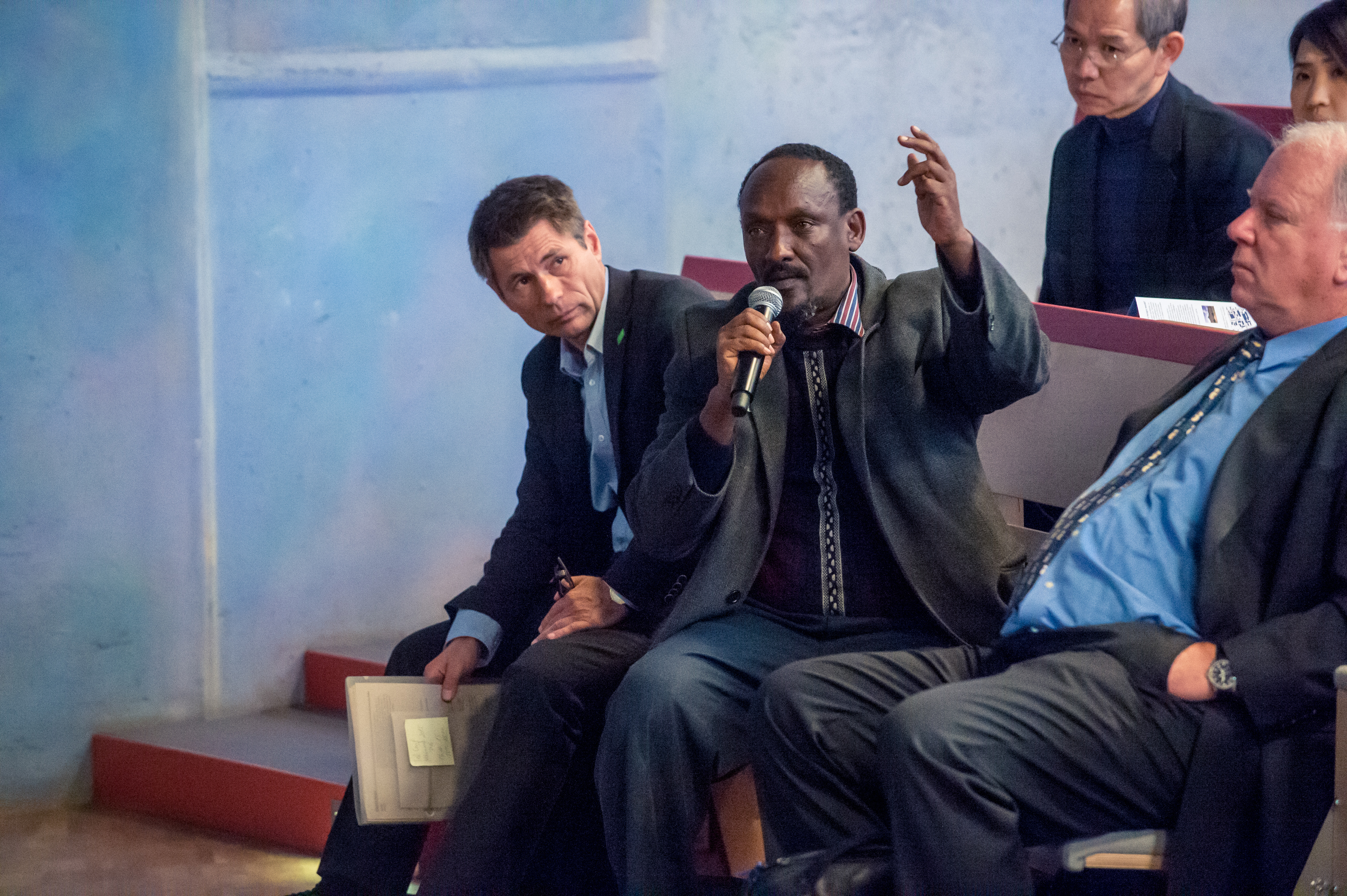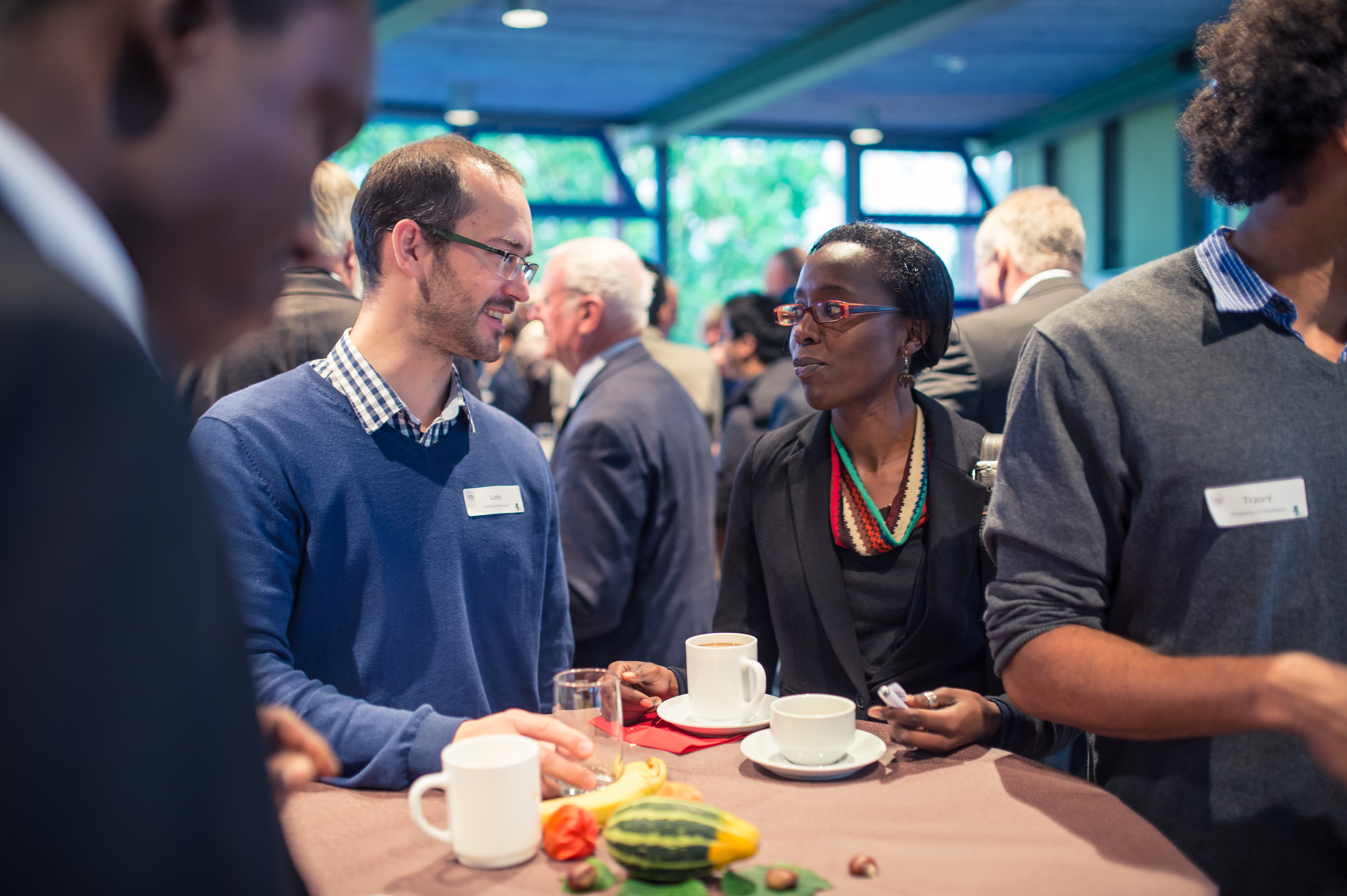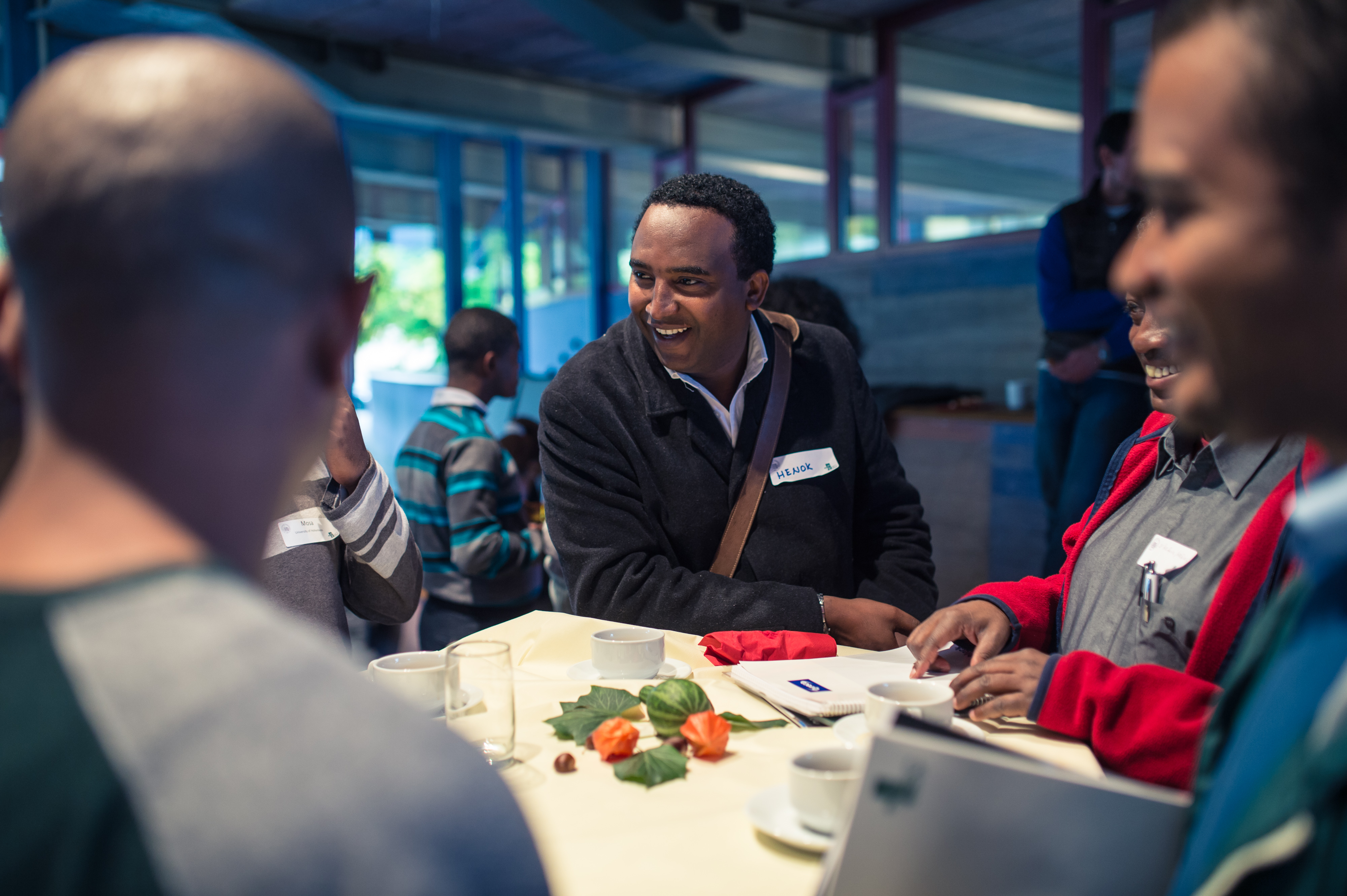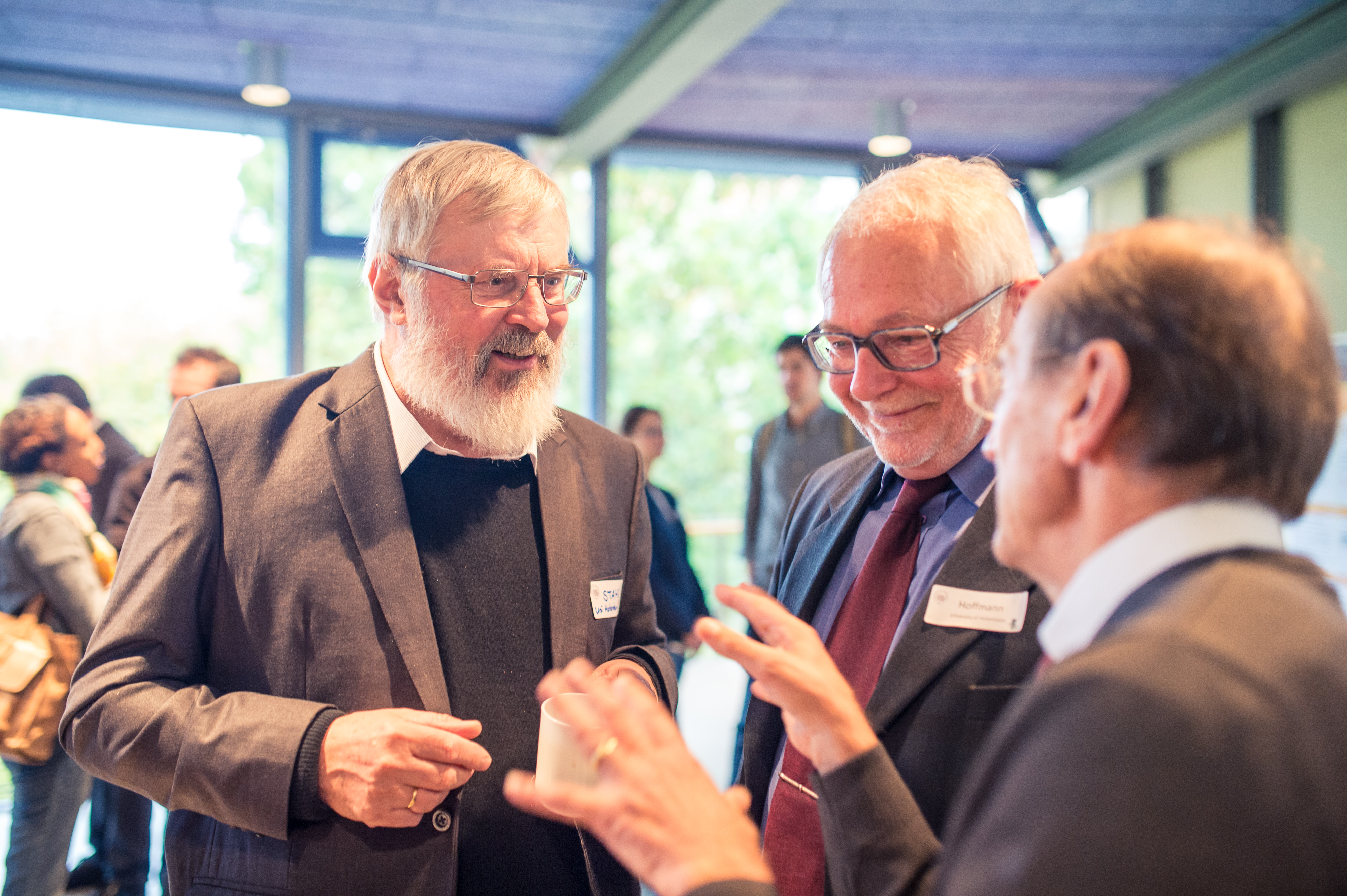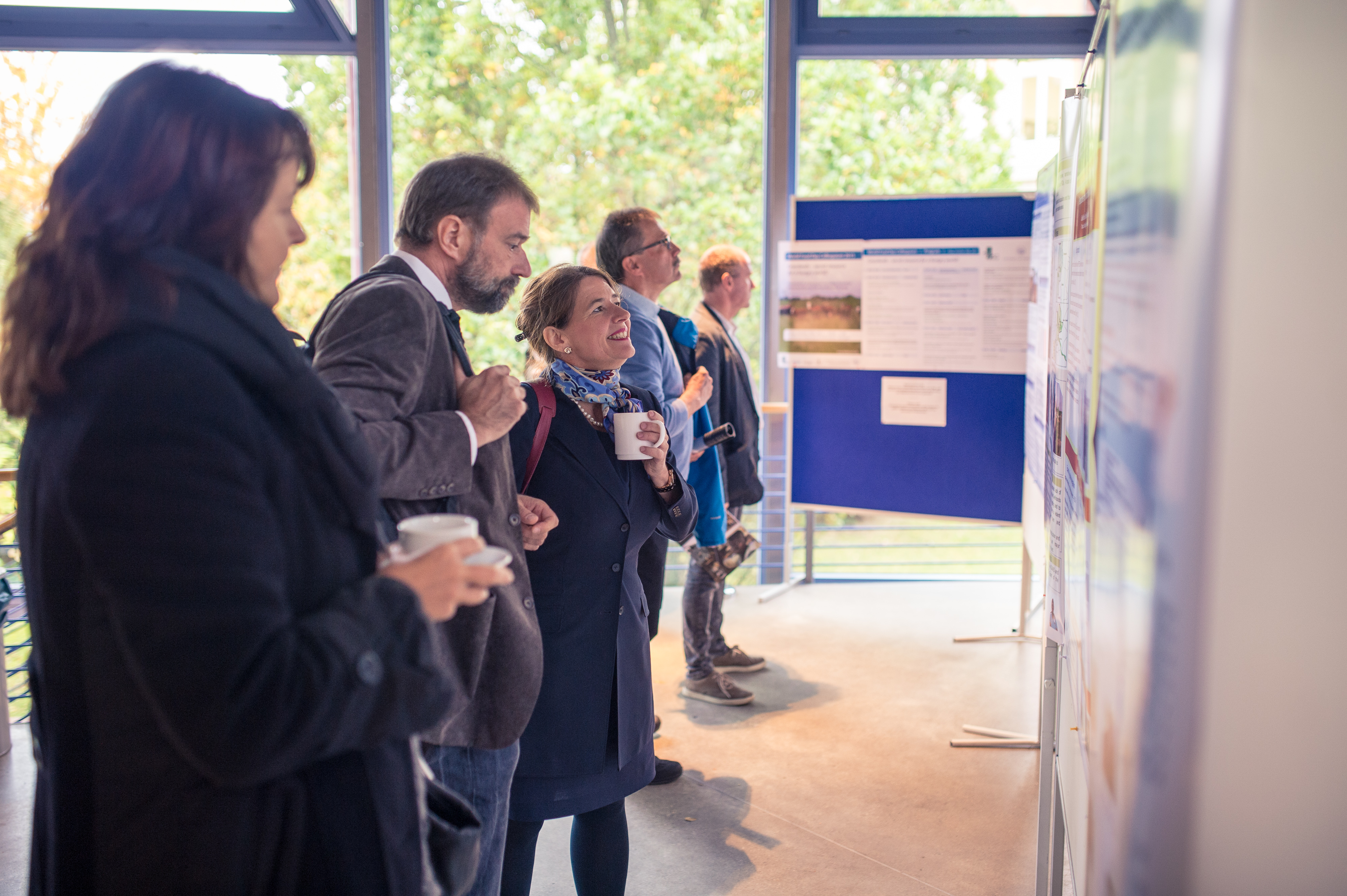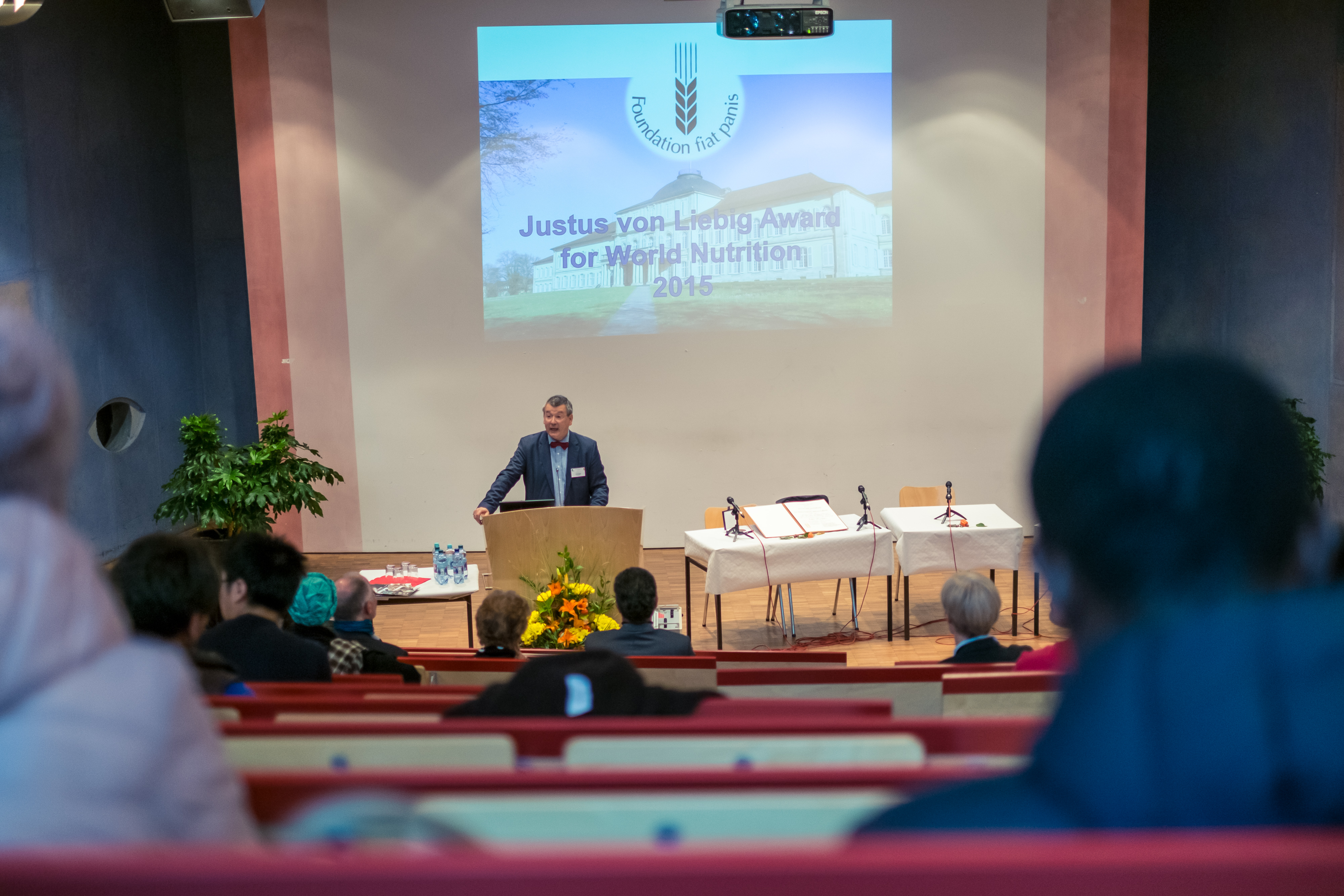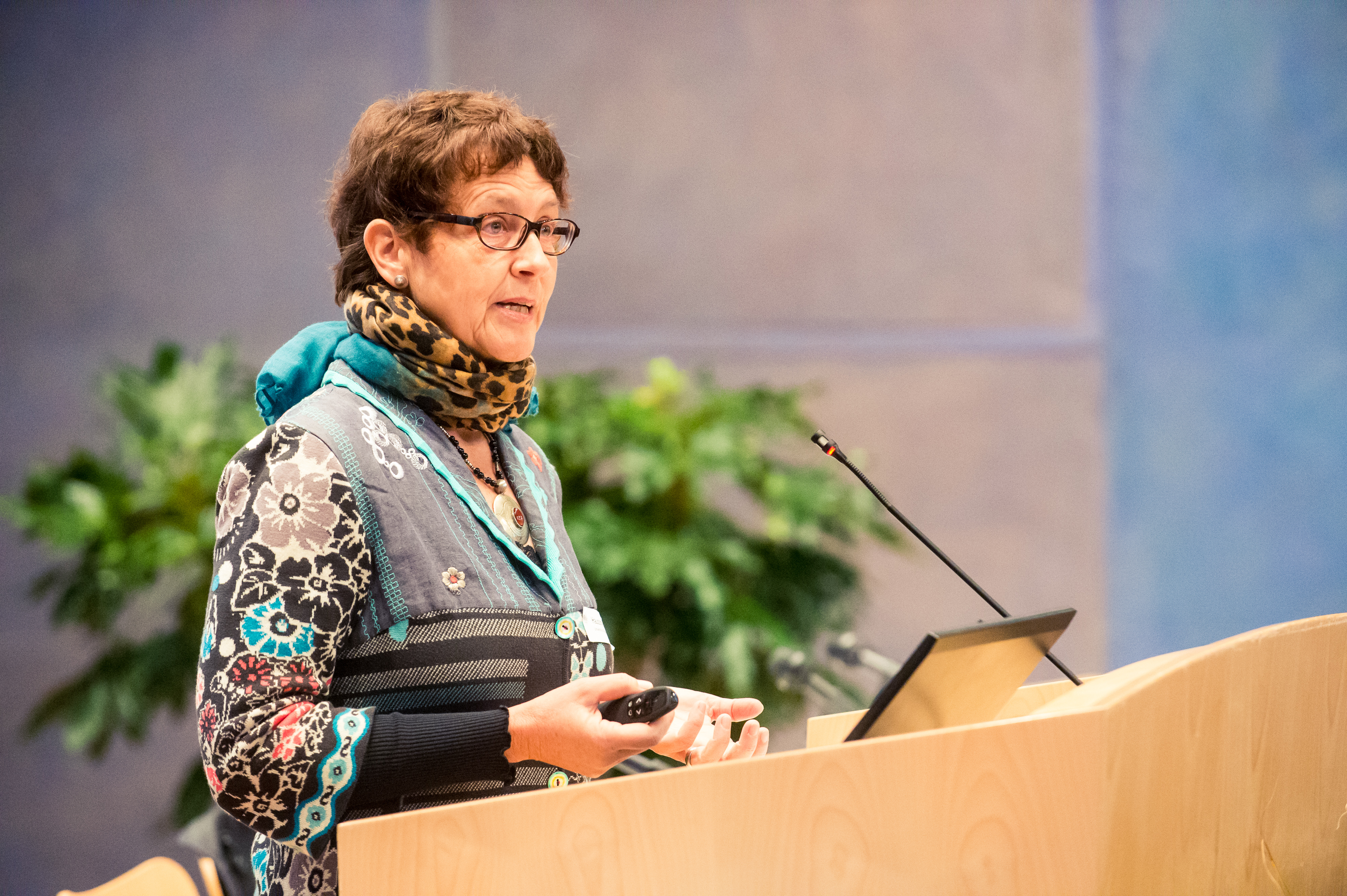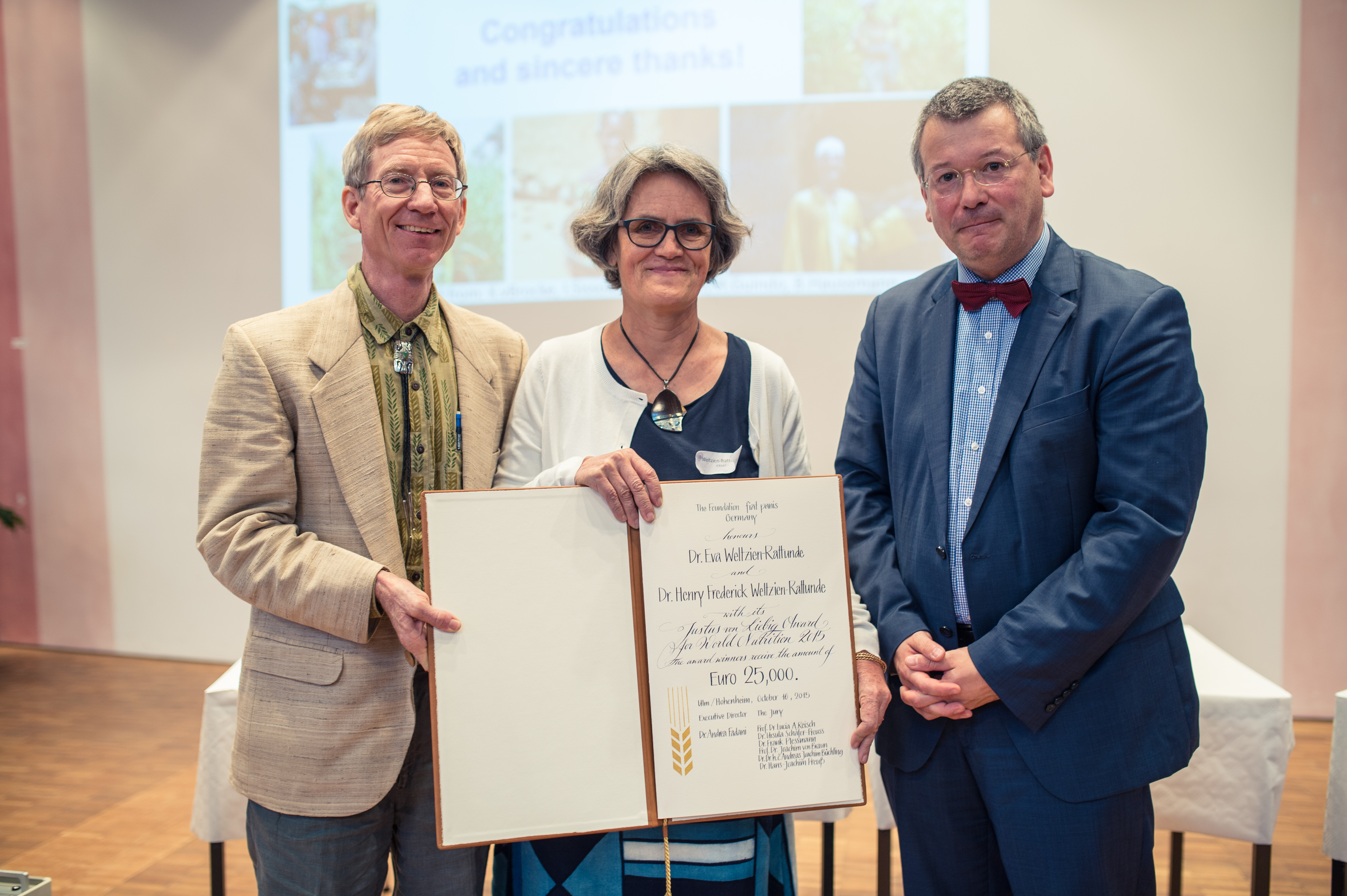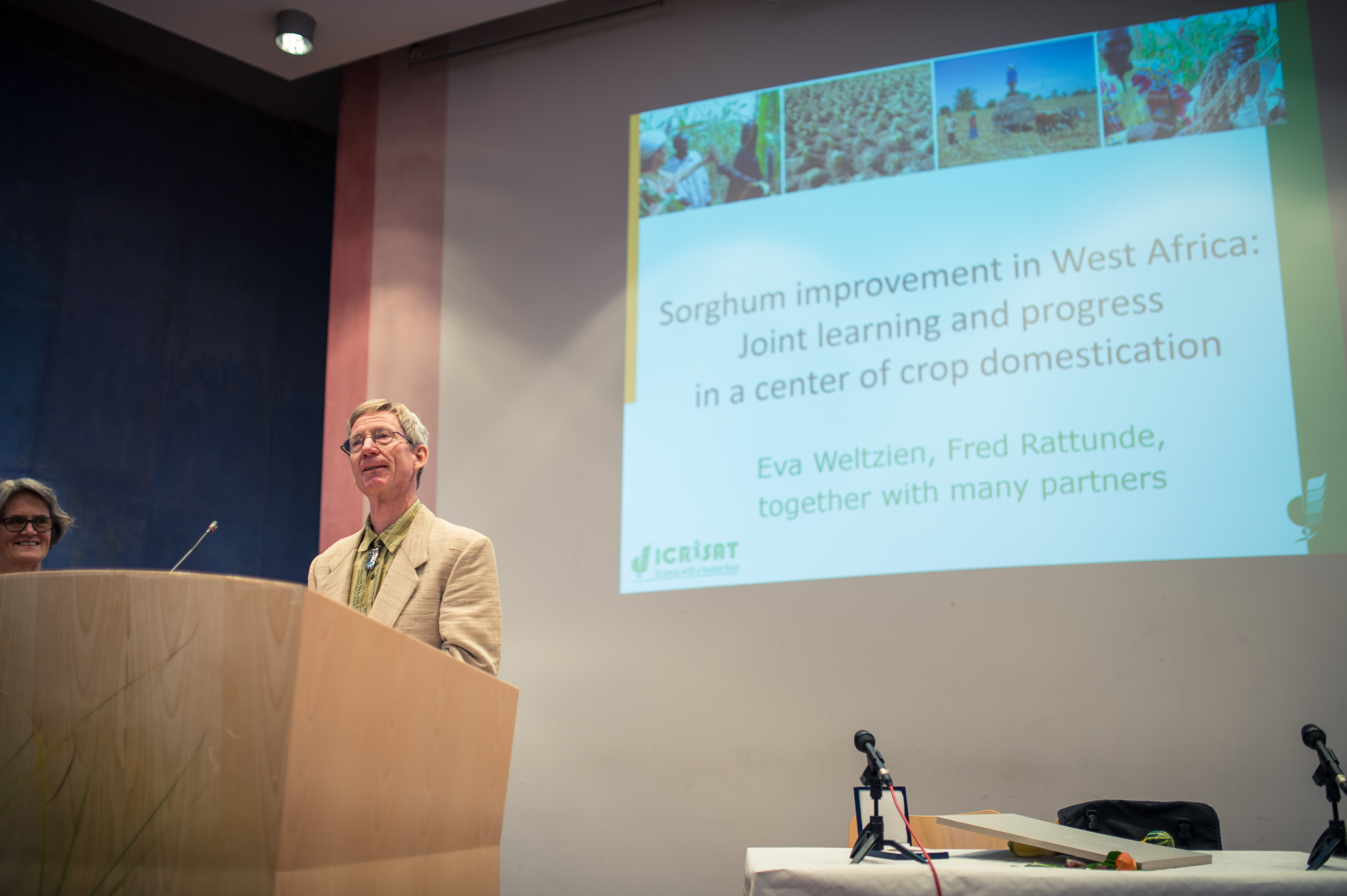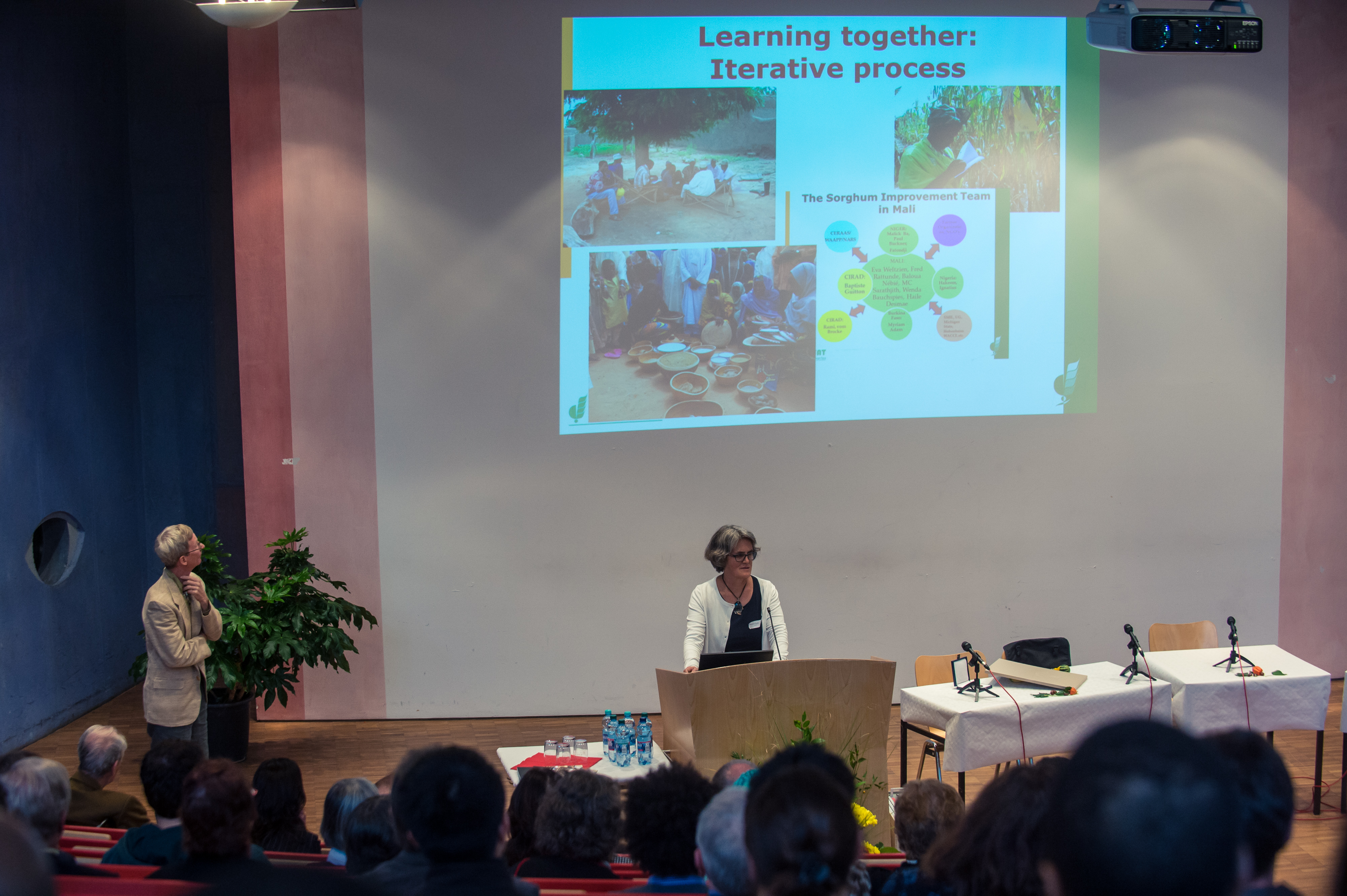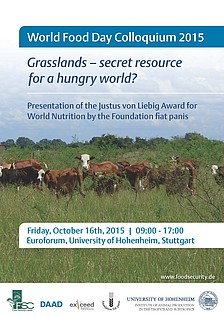World Food Day Colloquium 2015
Grasslands - secret resource for a hungry world?
October 16th, 2014 | University of Hohenheim
Grasslands are the largest terrestrial ecosystem worldwide, covering a land area of approximately 52.5 million km². Savannas, steppes, and tundras contribute largely to atmospheric carbon sequestration, biodiversity conservation, as well as fresh water filtration and storage. For millennia, their use for pastoral livestock production has sustained livelihoods of millions of people worldwide.
But, as a result of the growing human population and an increasing demand for food and energy, grasslands are more and more at risk. An intensive debate is therefore going on how to use and conserve these ecosystems in the future. Challenges
related to the increasing intensity and competitiveness in the use of grasslands, the sedentarization of mobile livestock farmers, their access rights to natural resources, and the need for conserving the multiple ecological functions of grassland
ecosystems will have to be addressed. Scientists from different disciplines of the University of Hohenheim are actively involved in grassland research. They presented their perspectives and suggest strategies for a sustainable, future-oriented grassland use.
Download the program as PDF here
| 08:00 - 09:00 | Arrival & Registration | Foyer |
| 09:00 - 09:30 | Opening Session | Katharina Hall |
| Moderation: Jun. – Prof. Dr. Uta Dickhöfer
Welcome Address
Prof. Dr. Stephan Dabbert Dr. Stefan Schmitz Prof. Dr. med. Hans K. Biesalski | ||
| 09:30 - 11:00 | Key Session | Katharina Hall |
|
10 Years of Global Hunger Index: Claims and Achievements
Dr. Klaus von Grebmer
Increasing Food Production from Global Grassland Resources. Implications for Food Security, Ecology, Ecology and Livestock nutrition.
Dr. Florian Leiber | ||
| 11:00 - 11:30 | Coffee Break | Foyer |
| 11:30 - 12:30 | Award Ceremony by Foundation fiat panis | Katharina Hall |
Laudation Justus von Liebig Award for World Nutrition 2015 | ||
| 12:30 - 13:30 | Lunch Break | Foyer |
| 13:30 - 13:50 | Katharina Hall | |
Approaches of young scientists from the University of Hohenheim and the Center for Development Research (ZEF), University of BonnKaderi Bukari, Juliet Kariuki, Sam Mburu, Willis Okumu, Ephraim Sekyi-Annan Chair: Dr. Detlef Virchow Center for Development Research (ZEF), University of Bonn
| ||
| 13:50 - 15:30 | Katharina Hall | incl. Coffee Break |
Hohenheim’s Perspective: Grassland – the “sleeping giant”Chair: Prof. Dr. Reiner Doluschitz Institute of Farm Management, University of Hohenheim
Grasslands: nothing more than a vast natural resource?Prof. Dr. Folkard Asch Institute of Plant Production and Agroecology in the Tropics and Subtropics, University of Hohenheim
Ecological footprint of grassland-based ruminant systemsJun.-Prof. Dr. Uta Dickhöfer Institute of Animal Production in the Tropics and Subtropics, University of Hohenheim
Sustainable Governance of Grasslands: What are the Challenges?Prof. Dr. Regina Birner Institute of Agricultural Economics and Social Sciences in the Tropics and Subtropics, University of Hohenheim
Impact of animal based production systems on human health and nutritionProf. Dr. med. Hans K. Biesalski Institute of Biological Chemistry and Nutrition, University of Hohenheim
| ||
| 15:30 - 16:45 | Panel | Katharina Hall |
Are Grasslands a secret resource for a hungry world?Chair: Dr. Detlef Virchow Center for Development Research (ZEF), University of Bonn
Discussion with ExpertsMathias MoggeExecutive Director Programmes, Deutsche Welthungerhilfe Dr. Florian Leiber Department of Livestock Sciences, Research Institute of Organic Agriculture (FIBL), Switzerland Daoud Abkula International Fellow, International Institute for Environment and Development, UK Prof. Dr. Regina Birner Institute of Agricultural Economics and Social Sciences in the Tropics and Subtropics, University of Hohenheim
| ||
| 16:45 - 17:00 | Closing | Katharina Hall |
Dr. Andrea Fadani | ||
